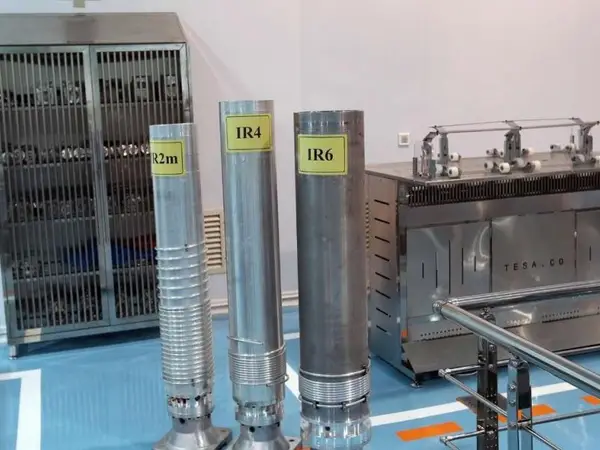The United States and its partners are likely to exert pressure on Iran if it uses talks in Vienna to accelerate its nuclear program, the US said on Saturday.
"If Iran thinks it can use this time to build more leverage and then come back and say they want something better it simply won't work. We and our partners won't go for it," US Special Envoy for Iran, Robert Malley, told the BBC News Hour.
But Iran has already built leverage, according to Fars news agency in Tehran affiliated with the Revolutionary Guard. In an article signed by a writer with hardliner credentials on Sunday, questioning an interim or partial deal, the hardline media outlet said that Western estimates of Iran being a few weeks away from having enough enriched uranium for a bomb are true.
Indirect nuclear talks between the United States and Iran, with the participation of major powers, resume on Monday after a five-month hiatus, while the idea of an interim deal has been mentioned in recent days. Iran has rejected the idea, but the Fars article leaves the door ajar.
It seems that negotiations have already started even before the first meeting convenes in Vianna. "If that's Iran's approach, which is to try to use the negotiations as cover for an accelerated nuclear program, and as I say, drag its feet at the nuclear table, we will have to respond in a way that is not our preference," said Malley, who heads up the US negotiating team. "Nobody should be surprised if at that point there is increased pressure on Iran.
"We hope not to get that there, but if we are, then pressure will have to increase to send a message to Iran that the choice it is making is the wrong one. That it has a different path available to it, but it's not a path open indefinitely because Iran's nuclear program is putting the very essence of the deal negotiated (in 2015) at risk," he said.
But Fars said in its article that the West has few tools to exert more pressure on Iran, given the energy crunch in the world, arguing that some countries are willing to clandestinely buy oil from Iran.
Fars also said that the West is clearly concerned about advances Iran has made and its decision to restrict monitoring by UN’s International Atomic Energy Agency (IAEA). That is why they are eager for a partial agreement that would stop Iran’s higher-degree uranium enrichment in exchange for reduction of sanctions on Iran’s oil exports. But the US is not willing to provide permanent guarantees that reduced sanctions would not be reversed in the future, Fars argued.
The article went on to say that interim or partial agreements in Iran’s 18-year nuclear talks with the West is not a new idea and was tried before with mixed results, and will not work in this case. Iran has been demanding the full removal of all US sanctions imposed since 2018 and if Tehran accepts an interim deal, it will mean it buckled under the pressure of sanctions.
But the Fars article does not reject the idea of an interim deal altogether and says, “If the West is willing to make serious concessions over Iran’s oil sales and the repatriation of the proceeds, it might be possible to theoretically consider [an interim deal], provided that Iran’s presence in the global oil market is guaranteed.”
